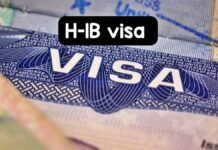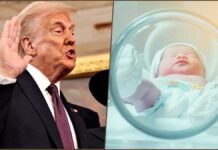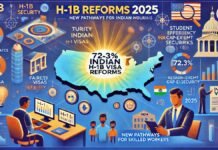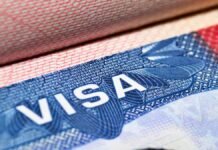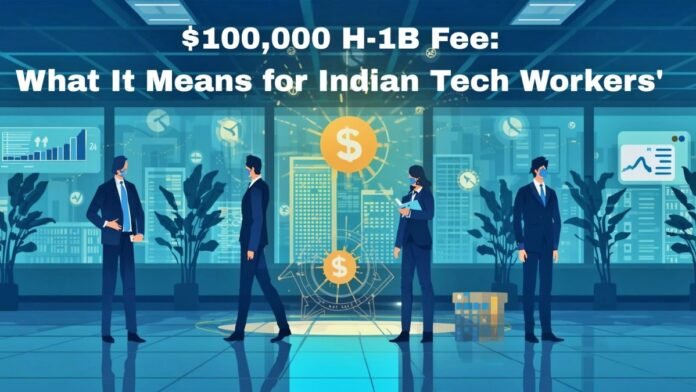
Key Points
- US President Donald Trump has signed a proclamation imposing a new $100,000 fee on H-1B visa applications for companies sponsoring foreign professionals.
- The new rule is set to take effect on September 21, 2025, for an initial period of 12 months.
- The administration’s stated goal is to curb the alleged “abuse” of the H-1B program and encourage companies to hire American workers.
- The decision is expected to significantly impact Indian professionals, who have received over 70% of H-1B visas in recent years.
- A new “gold card” visa was also announced, offering an expedited immigration path for a fee of $1 million.
Washington D.C: In a significant move to tighten immigration policies, US President Donald Trump signed a proclamation on Friday, September 19, 2025, imposing a new $100,000 application fee for companies sponsoring foreign professionals under the H-1B visa program. Effective September 21, 2025, the new rule is part of the administration’s broader “Hire American” agenda, aimed at ensuring the program is used to attract highly skilled individuals who do not displace domestic workers.
The H-1B visa is a non-immigrant visa that allows US companies to employ foreign workers in specialty occupations requiring a high level of theoretical or technical expertise, particularly in fields like science, technology, engineering, and mathematics (STEM).
Curbing “Systemic Abuse” and Protecting American Jobs
The Trump administration has long been critical of the H-1B program, with President Trump describing it as one of the “most abused visa systems”. The proclamation declares that the misuse of the program poses a “national security threat” and has disadvantaged US college graduates in the IT job market by enabling companies to hire foreign workers at lower wages.
US Commerce Secretary Howard Lutnick argued that the steep fee will incentivize companies to invest in and hire American citizens. “Either the individual is extremely beneficial to the firm and the nation, or they will leave, prompting the company to recruit an American,” Lutnick remarked. This view has been echoed by critics like Florida Governor Ron DeSantis, who previously labeled the H-1B visa a “scam” exploited by companies to replace American workers.
Impact on Indian Professionals and Tech Giants
The new policy is expected to have a disproportionate effect on Indian professionals. Since 2015, Indian nationals have consistently accounted for over 70% of all approved H-1B visas annually, with China following at a distant 11.7%. The dramatic cost increase is likely to deter companies, especially IT outsourcing and staffing firms, from filing applications in large volumes.
Major technology companies such as Amazon, Microsoft, and Meta Platforms, which heavily depend on H-1B workers to fill specialized technical positions, will now face a significant financial hurdle. In 2025 alone, Amazon secured over 10,000 H-1B visa approvals. This new fee structure may compel these corporations to reassess their hiring strategies and prioritize the domestic labor market. Details are still emerging, but the fee might be an annual charge for the visa’s three-year duration. It remains unclear whether this new fee will be an addition to existing fees, which already amount to several thousand dollars per application.
New “Gold Card” and the Future of High-Skilled Immigration
In addition to the H-1B changes, President Trump also unveiled a new “gold card” visa program. This initiative creates an expedited path to residency for individuals who pay a fee of $1 million, or $2 million if a corporation sponsors the applicant.
The administration has also instructed the Department of Labor to revise the prevailing wage levels for H-1B workers to prevent them from being hired at rates below the market average. These measures, combined with the new fee, signal a fundamental transformation of the US system for high-skilled immigration. While the administration asserts that the objective is to attract the “best of the best,” critics are concerned it could impede innovation and negatively affect industries reliant on global talent. The new H-1B fee is anticipated to face legal challenges.




































